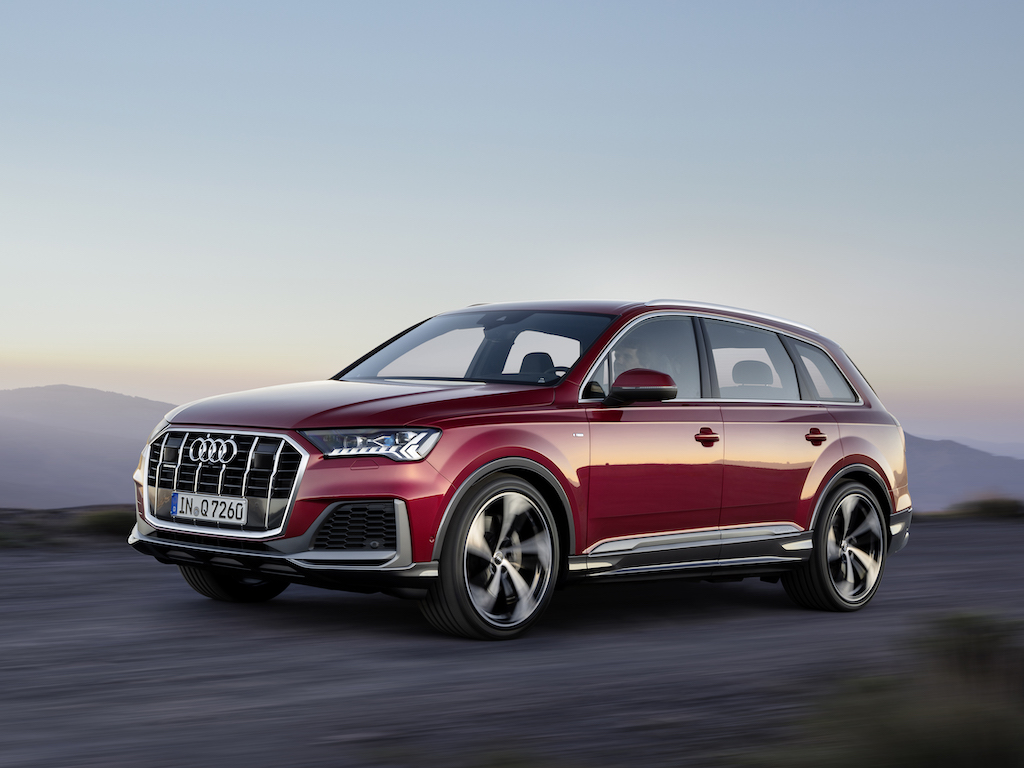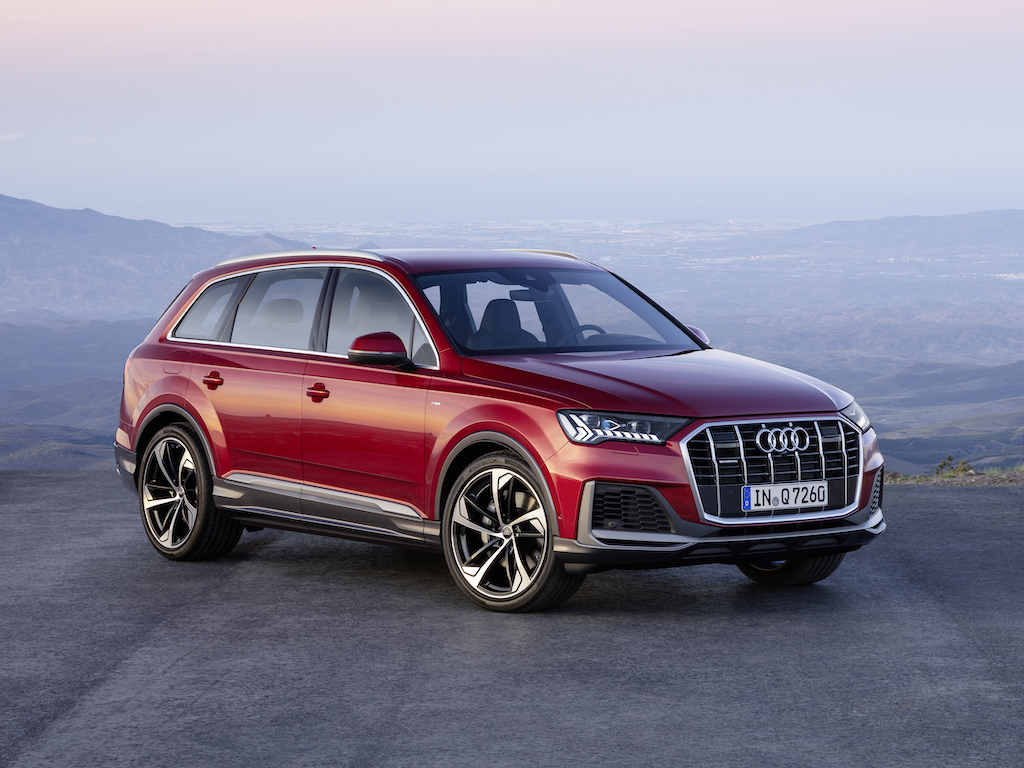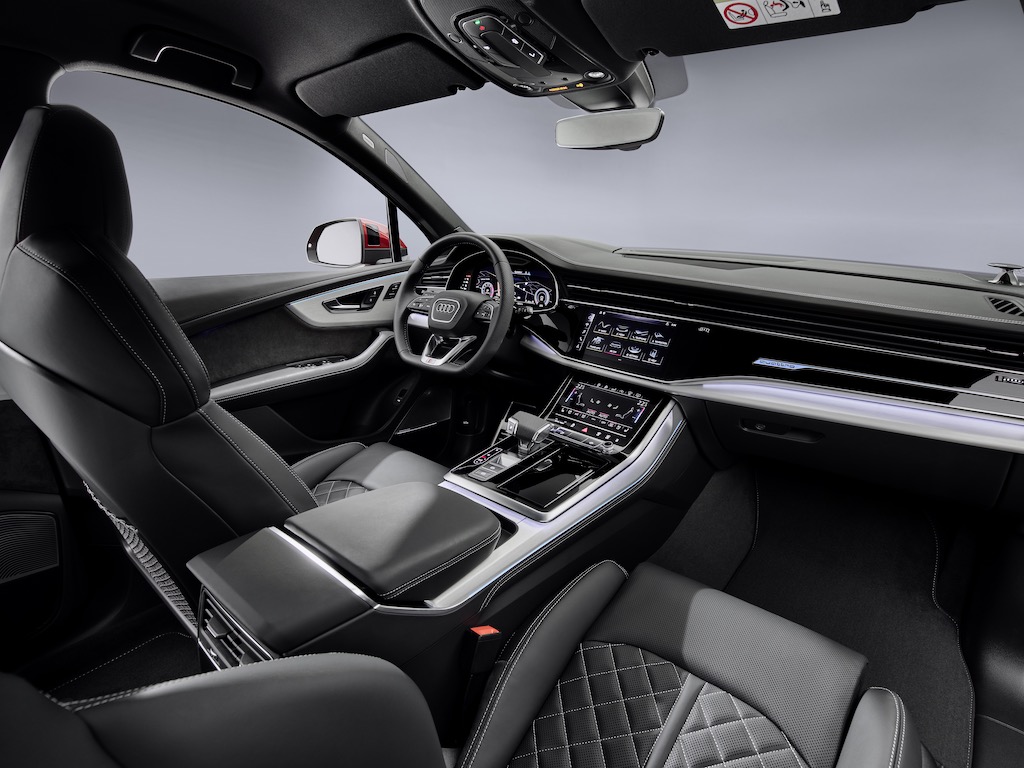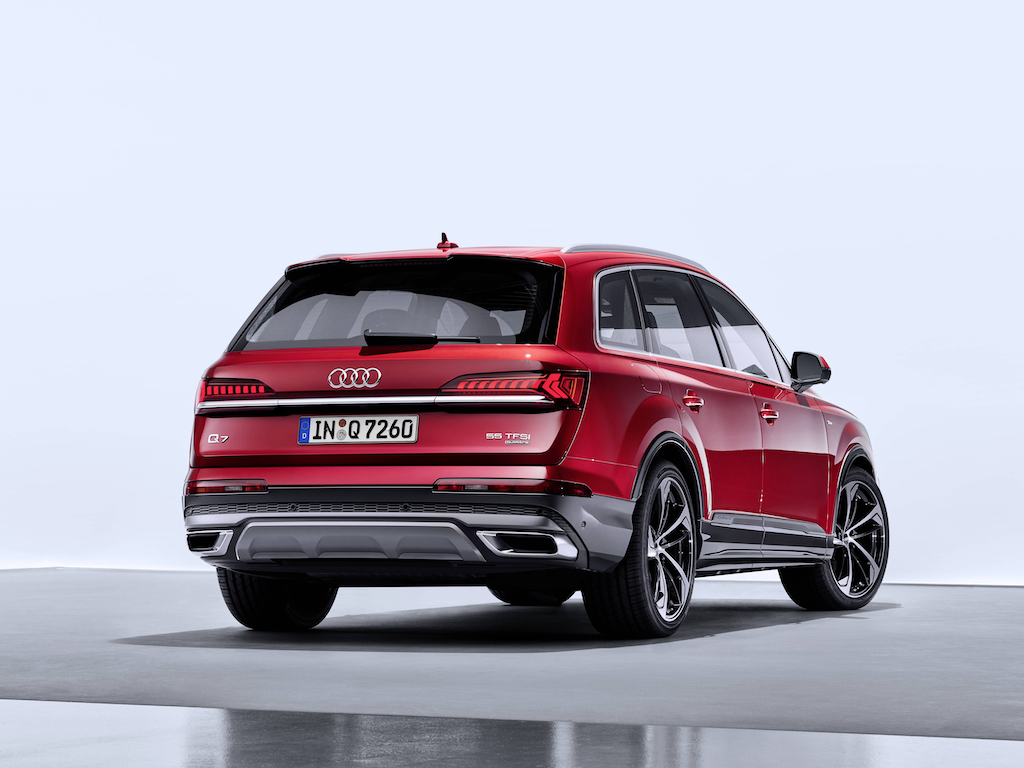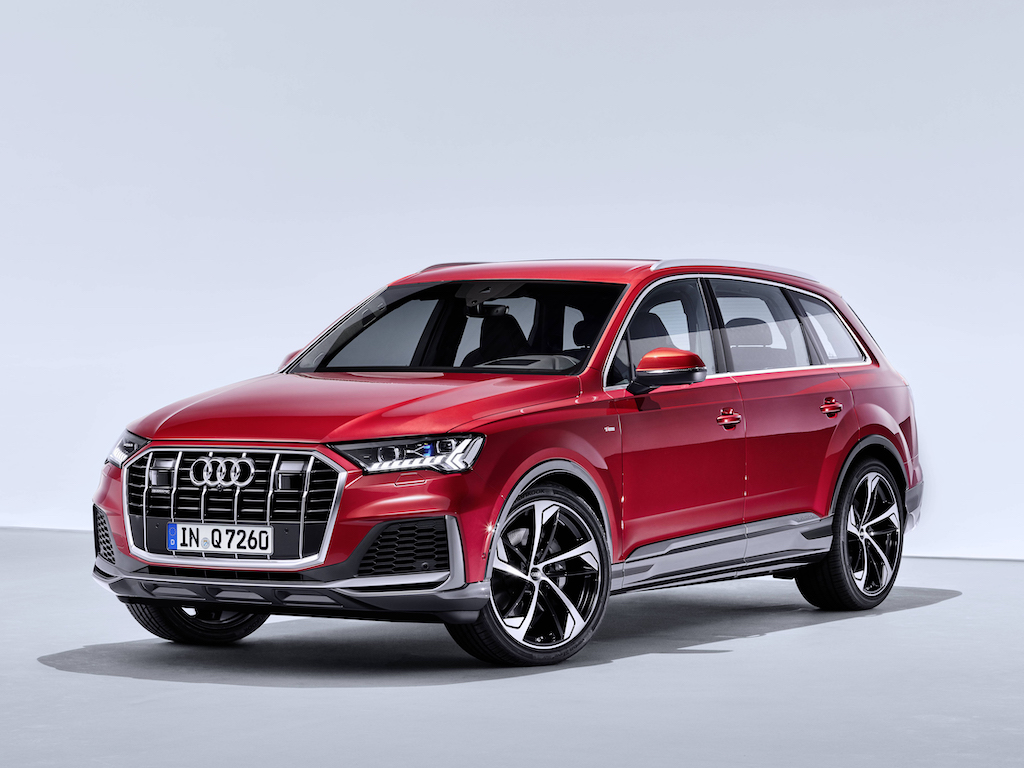RDE2 engines but no diesel PHEV for updated Audi Q7
Audi has dropped the diesel plug-in hybrid from the updated Q7 line-up, readying a petrol alternative said to be more in tune with global tastes, alongside a range of RDE2- compliant ‘mild hybrid’ versions.
The 3.0-litre TDI e-tron had been a unique product in its class; a 3.0-litre diesel engine where most had electrified a petrol unit, offering a range of around 90km to a full charge with CO2 emissions of 48-50g/km, depending on trim level. Sales had been disproportionately weighted towards businesses as a result; 6% of volume, versus 1% for private customers. Supply in both cases was limited by WLTP re-testing last year.
Details of its replacement are limited at the moment, but Audi has confirmed a petrol plug-in hybrid, badged ‘55 TFSIe’, which will launch by the end of the year. Audi’s badging system suggests it will produce between 330 and 370hp, and it is likely to offer a longer electric range to keep CO2 emissions as close to 50g/km as possible, under WLTP conditions.
From launch, the model range is suitably tailored towards fleets. There are three RDE2-compliant, 48-volt ‘mild hybrid’ 3.0-litre V6 engines; two diesels at 231hp and 286hp (the best-seller in the outgoing car), and a 340hp petrol, and the range is topped by the high-performance 4.0-litre V8 SQ7 TDI, at 435hp. CO2 emissions have not been announced yet.
The update introduces refreshed exterior styling and an interior that now falls in line with the A6 and A7. Audi’s centre console touchpad and rotary controller have gone, replaced by two touchscreens with haptic ‘click’ feedback to user commands. An 8.8-inch infotainment system is standard for the top screen, but the 10.1-inch upgrade includes data-connected services such as navigation that can learn the fastest way between familiar points, on-board WiFi and live traffic light data in selected cities, starting in Germany. Traffic light data is designed to encourage a smoother, more fuel-efficient driving style, matching speed to the next green light.
LED headlights are standard across the range. Seven-seat versions include six ISOFIX child seat points – again, unusual in this class – with the option to have individually sliding seats in the second row, and to add gesture-controlled opening to the standard-fit electric tailgate. Audi’s virtual key system enables up to four users to access the car via a smartphone app.
The updated Q7 will be available to order from the autumn, with deliveries due early in 2020.

